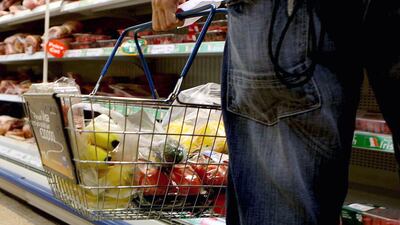Prices of supermarket own-brand and budget products have increased more than premium and branded foods during the cost-of-living crisis, new figures show.
Which? tracked the annual inflation on tens of thousands of food and drink products across seven months at eight major supermarkets — Aldi, Asda, Lidl, Morrisons, Ocado, Sainsbury’s, Tesco and Waitrose — to find that own-brand and budget ranges have gone up by as much as 18 per cent.
During the same period, premium own-brand ranges rose by 13 per cent and branded items by 12 per cent.
Many households have increasingly turned to cheaper products to offset soaring bills during the cost-of-living crisis, with the latest Kantar figures showing own-label sales are up 11.7 per cent year on year while the cheapest value own-label lines are up 46.3 per cent.
Which? found the biggest year-on-year price increases on supermarket budget food and drink for the quarter ending October 31 were on Creamfields Soft Cheese (200g) at Tesco, up from 49p to 84p — an increase of 72 per cent — and Sainsbury’s Simply Muesli (1kg) which went from £1.20 in 2021 to £2.03 in 2022 — a 70 per cent increase.
What is a recession? — video
The 20 worst budget products for inflation across the supermarkets for the same period also included Tesco products including Hearty Food Co 2 Garlic Chicken Kievs (260g), Growers Harvest Orange Juice (3X200ml) and Rosedene Farms Small Pear Pack (550g), all soaring above 60 per cent in price over the year.
Sainsbury’s groceries also reported some of the highest inflation on budget items, such as its Hubbard’s Foodstore Sparkling and Still Waters (2L), J James & Family Fresh British Chicken Breaded Kyiv with Garlic Butter (240g) and Mary Ann’s Dairy Soft Cheese (200g), all going up in price by more than 50 per cent.
Which? findings show that the worst supermarkets for overall inflation on food and drink were Aldi (up 19.6 per cent) and Lidl (19 per cent). However, both discounters still tended to be the cheapest of the big supermarket chains.
The discounters were followed by Asda (15.2 per cent), Morrisons (14.4 per cent), Waitrose (14.2 per cent), Sainsbury’s (13.7 per cent) and Tesco (12.6 per cent). Ocado had the least inflation overall (10.3 per cent).
How to prepare for a recession — video
“Our inflation tracker lays bare the shocking scale of soaring food and drink prices — including on budget and own-brand products,” said Sue Davies, Which? head of food policy.
“We know the big supermarkets have the ability to take action and make a real difference to people struggling through the worst cost-of-living crisis in decades.
“That’s why we’re calling on them to ensure everyone has easy access to basic, affordable food lines at a store near them, can easily compare the price of products to get the best value and that promotions are targeted at supporting people most in need.”


